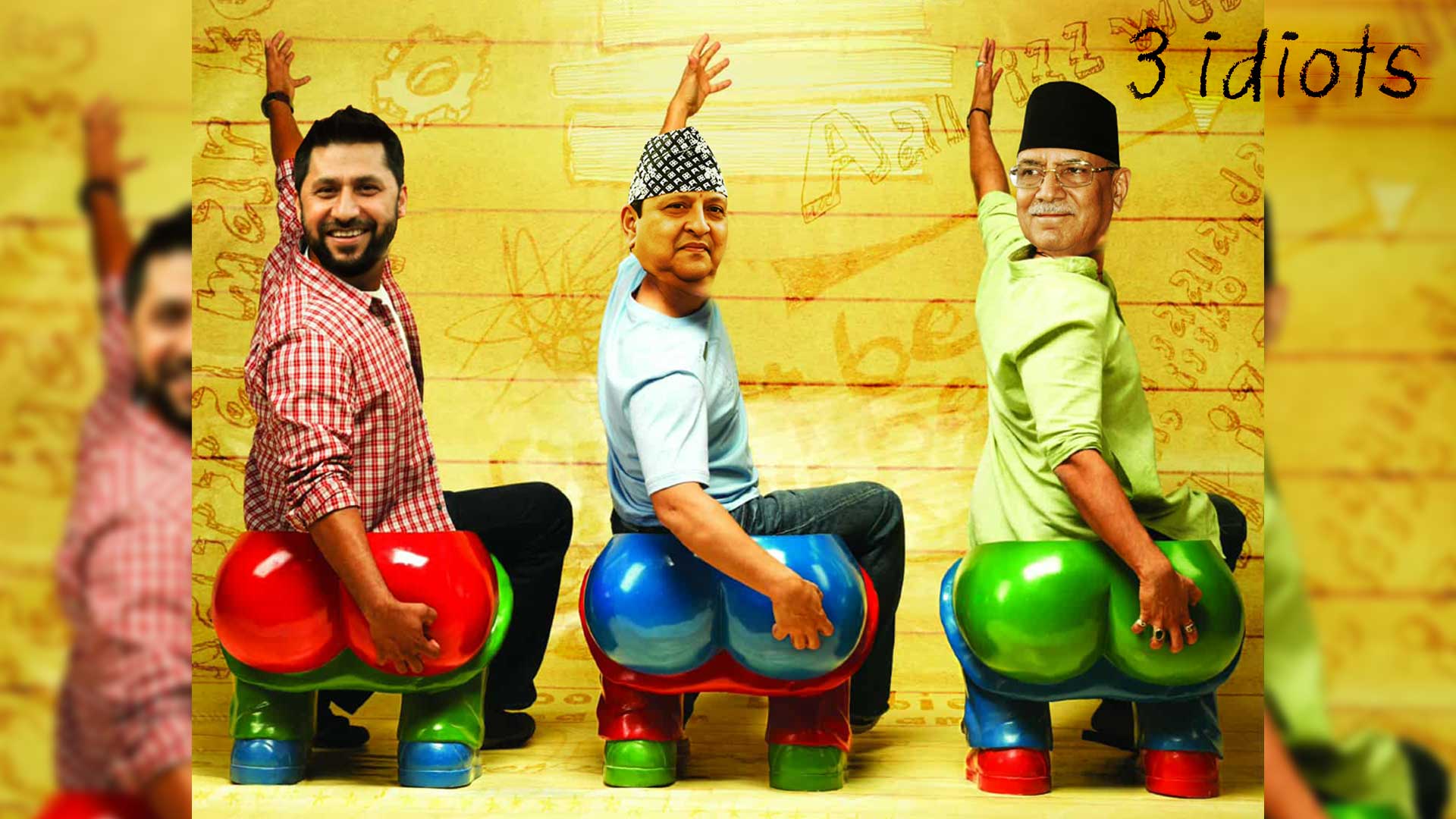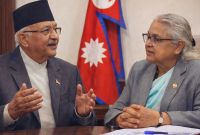Gen Z Uprising and the ‘3 Idiots’: Power Games of Rabi, Prachanda, and Gyanendra Exposed!

Nepal’s recent Gen Z–driven uprising has resurfaced a controversial political narrative now branded as the story of the “3 Idiots.” At the center of this storm stand three unlikely figures—former King Gyanendra Shah, Maoist leader and ex–Prime Minister Pushpa Kamal Dahal “Prachanda,” and Rastriya Swatantra Party chief Rabi Lamichhane—each accused of fueling the protests with hopes of returning to power in different forms.
According to political insiders, the former monarch allegedly saw the agitation as an opportunity to push for the restoration of the monarchy, while Prachanda hinted at a “Bangladesh model” transition that could weaken KP Oli’s government and re–elevate him to the premiership. Rabi Lamichhane, even while facing legal troubles and spending time in detention, was reported to have declared that Oli’s government would fall—reportedly with a promise that he would secure the post of Deputy Prime Minister and Home Minister in return.
Multiple sources suggest that each of the three leaders, branded sarcastically as “idiots” by critics, directed their party workers and loyalists to take to the streets under the banner of the Gen Z protests. Other discontented leaders were also allegedly offered promises of political rewards based on their weight in the system.
But when the dust settled, the outcome shocked them all. A government was formed under former Chief Justice Sushila Karki, and none of the three men received the positions or power they were allegedly seeking. Instead, protests spiraled into violence, leaving several leaders’ residences torched and citizens bearing the brunt of destruction.
Public outrage online has been fierce. Social media commentators accused the trio of “playing power poker with the blood of the youth,” while political analysts argue that the episode reflects the deep dysfunction of Nepal’s transitional politics, where opportunism continues to overshadow stability. Attempts to reach representatives of Prachanda, Lamichhane, and Gyanendra for comment received no direct response, though aides privately dismissed the allegations as exaggerated.
As Nepal grapples with the aftermath of the Gen Z revolt, one lingering question dominates: will new leaders emerge to break the cycle, or will the stage once again be set for another trio of “idiots” to gamble with the nation’s future?




![From Kathmandu to the World: How Excel Students Are Winning Big [Admission Open]](https://www.nepalaaja.com/img/70194/medium/excel-college-info-eng-nep-2342.jpg)
